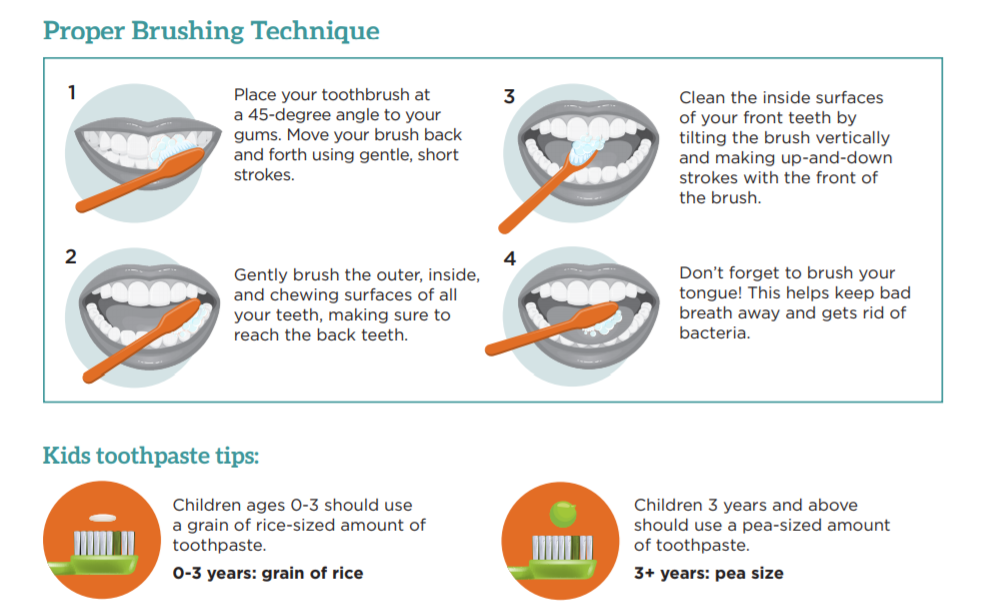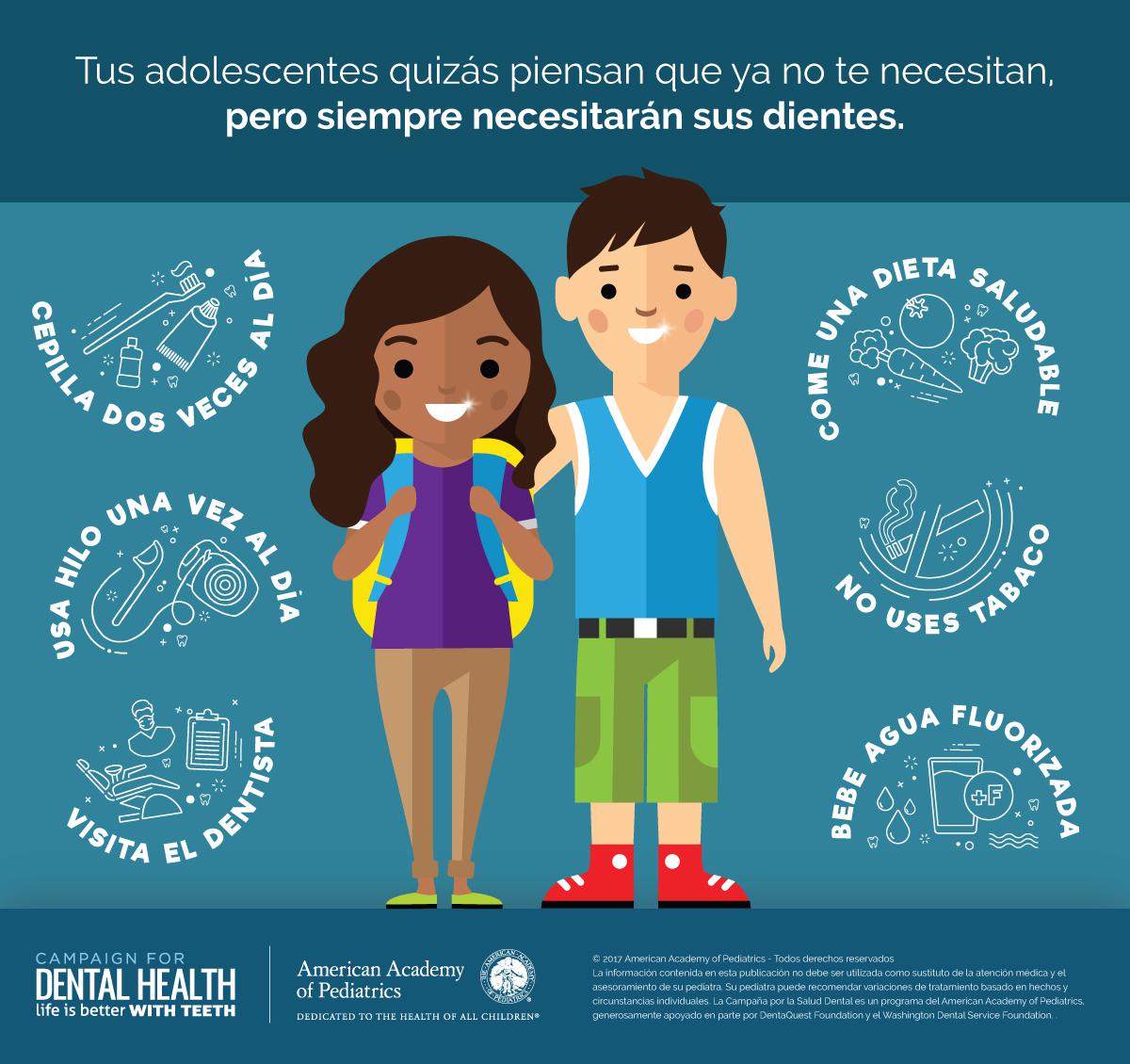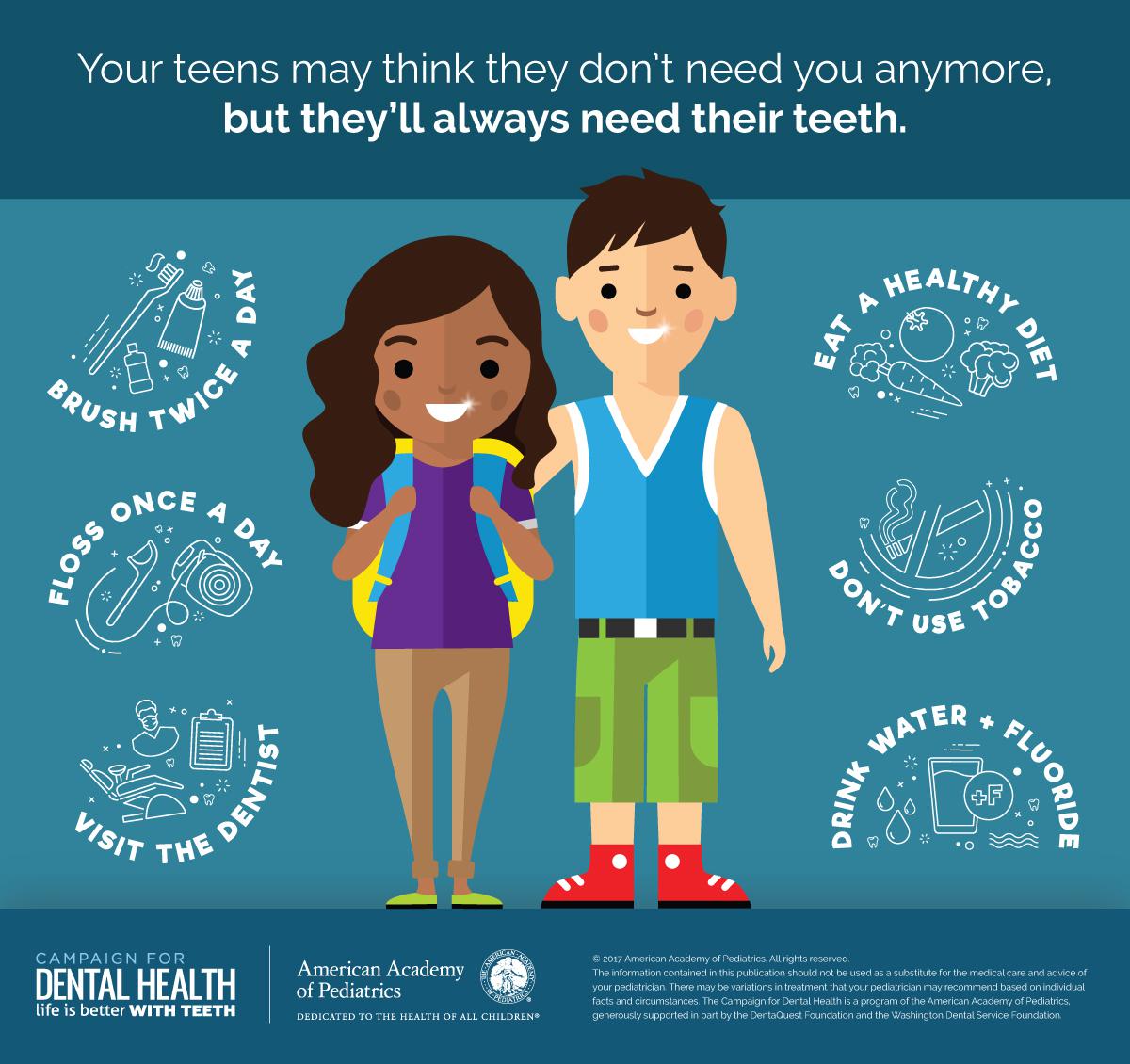The Basics of Oral Hygiene

Excellent Oral Health
at Every Age
The discussion about oral health must not be exclusive to adults. People of every age in Imperial County, CA deserve access to excellent dental care services, which include case management and surveillance. Here at ICPHD - Oral Health Program, we help you and your family get the best dental assistance and oral health education. We believe that achieving excellent oral health is possible at any age with the right tools and services.
Infants 0-1
Baby teeth are sensitive and require the utmost care and attention. Healthy baby teeth keep your baby smiling happily and helps them chew and speak properly. It is best to take your baby to their first dental appointment before their first birthday to ensure that their oral health is in excellent shape. ICPHD - Oral Health Program provides you with the best advice and dental assistance for your babies.
Get more information about dental care for infants. Read our articles:
Toddlers 1-4
Keeping your toddler healthy starts with their oral hygiene habits. Brushing your toddler’s teeth with fluoride toothpaste helps keep their teeth strong and healthy. ICPHD - Oral Health Program provides you with practical tips to keep your toddler’s gums and teeth safe and healthy. Give your child a healthy start by caring for their oral health and seeking dental services regularly.
Read more about oral care for toddlers. Click on our articles:
Kids 5-12
Your child’s oral health is even more important as their permanent teeth grow. Avoiding cavities must be a priority for children aged 5-12. ICPHD - Oral Health Program assists you in strengthening your child’s teeth with quality dental services. We help you teach your child how to properly care for their oral health to keep their teeth and gums healthy.
Learn more information about dental care for kids ages 5-12. Read our resources below:
Teens 13-17
As teens begin to live busier lives, they must continue to practice good oral health habits. While teens might think they don’t need advice from adults, they still need their teeth to be healthy. ICPHD - Oral Health Program educates teens on good oral hygiene for daily life. Teenagers are also welcome to seek dental care assistance for all their oral health needs.
Get more information about oral care for teens. Read our resources below:
Adults 18-54
Resources for Senior Citizens
To ensure that an individual can enjoy their food, eat well, and avoid pain and tooth loss even as they age, older adults must care for their oral health. However, this can get challenging especially if a caregiver doesn’t know where to start. Here are some resources to help you in this journey:
Children With Special Needs
Children with developmental disabilities, behavioral issues, or physical disabilities deserve to be accommodated by caring dentists. If your child has Down’s syndrome, cerebral palsy, or mild anxiety disorders, they might need extra time and support when seeing a dentist. ICPHD - Oral Health Program can help direct you to better dental services for your child.
Learn more information about dental care for kids with special needs. Read our resources below:
Dental Care and Pregnancy
Practicing proper oral hygiene during your pregnancy is the best way to keep you and your baby smiling. As pregnant women are more prone to gingivitis, the ICPHD - Oral Health Program is here to help you maintain excellent oral health. You and your baby are sure to benefit from excellent dental care services and the best oral health advice.
Learn more information about dental care during pregnancy. Browse our articles:
Adults 18-54
You and your child’s benefits include dental coverage as a Medi-Cal member. The following chart shows an overview of the dental services covered by Medi-Cal.
| Services | Babies | Kids | Teens | Pregnancy | Adults | Seniors |
|---|---|---|---|---|---|---|
| Exam* | Y | Y | Y | Y | Y | Y |
| X-rays | Y | Y | Y | Y | Y | Y |
| Teeth Cleaning | Y | Y | Y | Y | Y | Y |
| Fluoride Varnish | Y | Y | Y | Y | Y | Y |
| Fillings | Y | Y | Y | Y | Y | Y |
| Tooth Removal | Y | Y | Y | Y | Y | Y |
| Emergency Services | Y | Y | Y | Y | Y | Y |
| Sedation | Y | Y | Y | N | Y | Y |
| Molar Sealants** | N | Y | Y | N | N | N |
| Root Canals | N | Y | Y | Y | Y | Y |
| Orthodontics (Braces)*** | N | N | Y | N | N | N |
| Crowns | N | N | Y | Y | Y | Y |
| Partial and Full Dentures | N | N | Y | Y | Y | Y |
| Denture Relines | N | N | Y | Y | Y | Y |
| Scaling and Root Planning | N | N | Y | Y | Y | Y |
*Free or low-cost check-ups every six months for members under the age of 21, every 12 months for members over the age of 21.
**Molar sealants are covered for teens up to age 21.
***For those who qualify.
Untreated Tooth Decay in Adults
Older adults who smoke cigarettes are twice as likely to have tooth decay as those who are non-smokers. One in three adults aged 65 or older who smoke cigarettes also has untreated tooth decay. The correlation between smoking and oral health makes it even more important for adults to get regular dental check-ups.
FAQs
Proper oral health education is essential in maintaining healthy and beautiful smiles. Learn how you can take better care of your teeth and gums with helpful, factual dental health information.
- An oral health screening is a 2- 3 minute “lift the lip” check of the teeth and tissues of the mouth to see if there are any signs of tooth decay. Screenings can be conducted by dental hygienists and do not require dental instruments or lights. Screenings do not involve x-rays, making diagnoses, or treatment plans.
- A dental exam is a thorough oral examination that can only be performed by a licensed dentist and may include dental X–rays. A dental exam also includes a: health history, social history and an opportunity to provide dental health information.
- Brushing your teeth helps prevent tooth decay. Tooth decay is caused by a sticky, slimy substance called plaque. Plaque is caused by bacteria, the bacteria in plaque makes acids when plaque sticks to your teeth which then causes tooth decay.
- To keep your teeth and gums healthy, you need to brush your teeth at least twice a day for two minutes. When you are brushing be sure to brush all your teeth, not just your front teeth. And don’t forget to brush your gums and tongue too! Please click on the link below to learn more about brushing:
https://www.mouthhealthy.org/en/az-topics/b/brushing-your-teeth
- Flossing your teeth may help prevent cavities and gum disease. Cleaning between your teeth helps remove a sticky film called plaque. Plaque contains bacteria that feeds on leftover food or sugar in your mouth. When that happens, it releases an acid that can eat away at the outer shell of your teeth and cause cavities. Please click on the link below to learn more about flossing:
https://www.mouthhealthy.org/en/az-topics/f/flossing
- Fluoride is a mineral that occurs naturally in soil, water, and air. It has been shown to reduce tooth decay and prevent cavities. Fluoride works by strengthening the tooth’s hard outer surface called enamel. Many oral care products such as toothpaste and mouth rinse contain fluoride.
- In the dental office, a dentist can apply fluoride varnish or gel, and in some public health programs, children can have fluoride varnish applied to their teeth. Fluoride can prevent tooth decay across the lifespan; both children and adults benefit from it. Learn more about fluoride here:
https://www.mouthhealthy.org/en/az-topics/f/fluoride
- Dental sealants are thin plastic coatings that protect the chewing surfaces of children’s back teeth (molars) from cavities. Food and germs can get stuck in the pits and grooves of these teeth and stay there for a long time because toothbrush bristles cannot brush them away. Sealants fill in the grooves and keep the food out.
- Children should get sealants on their permanent molars (back teeth) as soon as they come in, before decay attacks the teeth. The first molars come into the mouth when children are about 6 years old, and the second molars appear when children are about 12 years old. Please click on the link below to learn more about dental sealants:
https://www.mouthhealthy.org/en/az-topics/s/sealants
- Baby teeth may be small, but they're important. They act as placeholders for adult teeth. Without a healthy set of baby teeth, your child will have trouble chewing, smiling, and speaking clearly. That's why caring for baby teeth and keeping them decay-free is so important. By starting early, your baby gets used to the daily routine. Please visit the link below to learn more about caring for baby teeth:
https://www.mouthhealthy.org/en/az-topics/b/baby-teeth
- Preventive dental cleanings and annual exams during pregnancy are not only safe but are recommended. Due to the rise in hormone levels during pregnancy the gums may swell, bleed, and trap food causing increased irritation to your gums this may cause gum disease which has been linked to preterm birth. Please visit the link below to learn more about pregnancy and dentist:
https://www.mouthhealthy.org/en/pregnancy/healthy-habits
Get Access to Oral Health Resources
At ICPHD, we aim to educate as many people as we can about dental health. If you need help with accessing files or information on our website, you may reach out to us via phone at 442-265-1454, email us at icoralhealth@gmail.com, or send us a message through the form below. We’ll do our best to assist you.

